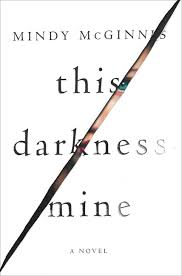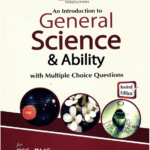Description
Sally Rooney’s novel, “Conversations with Friends,” has been highly praised since its 2017 release. It is a modern, complex look at relationships through the relationship as defined by friendship, love, and the angst of being young in this world. The cool, reflective outline of the emotional lives of her characters is due to Rooney’s unique writing style and dialogue.
Plot Summary:
The story is written in first person by Frances, a college student from Dublin aged 21. Frances is smart but emotionally numbed and an aspiring writer, who, with her best friend and ex-girlfriend Bobbi, performs spoken words poetry. Though they are ex-girlfriends, Frances and Bobbi are still close and intense friends, working together on a number of artistic projects.
Everything changes when they meet Melissa-a cosmopolitan older writer and photographer-and her husband Nick, an actor who at least looks good-looking. Very soon, the four become enmeshed in each other’s lives, leading into a complicated web of emotional entanglements.
They have an affair while Nick is still married to Melissa. Frances is attracted to the quiet and rather passive aspect of Nick’s personality; their love becomes an important part of the novel.
The close but flirtatious friendship between Bobbi and Melissa deepens the complexity and tension in the group relationships.
Throughout the book, Frances struggles with her insecurities about being more vulnerable, in control, and so forth, in addition to her various complicated relationships with Bobbi, Nick, and her estranged parents. Such interesting themes of identity, emotional attachments, jealousy, and how far friendship or love can stretch define the novel.
Rooney tends to blur the line between friendship and love, especially in the bond that Frances and Bobbi share. Their bond is really intense, intellectual at times, but often tending towards romanticism even though they broke up long ago. The novel explores the ways through which people can be emotionally dependent on their friends in ways that may mirror the requirements of romantic relationships, and it asks the question as to what lines may encircle love and how kinds of relationships co-exist.
Power and Vulnerability The novel probes deep into power-sharing issues in relations either founded on age, financial status, emotional strength, or social status. Frances’ relation with Nick is full of inequalities, for she often felt inferior compared to him due to their age and life experiences. Similarly, her relation with Bobbi holds minuscule power games as Frances is often caught emotionally by Bobbi’s confidence and charisma.
Self-Discovery and Identity Frances is somewhat alienated, emotionally distanced at times-the one who cannot speak for herself. She embarks upon a quest to comprehend her anxieties, complicated relationships with her body, health (endometriosis), and self-worth in the context of the novel’s framework. In fact, the entire journey for her is introspection-based, and that is the core of the narrative where she figures out who she is and what she wants from life.
Complexity and vagueness of emotions Rooney is noted for her complex characterization and relationship, and she tries to avoid all kinds of simple, clear-cut resolutions and judgments as much as she can. The world of “Conversations with Friends” is marked by the emotional ambiguity and complicatedness. An affair of Frances with Nick does not take place in one condition: either it is betrayal or passion. Instead, their affair goes on growing in a confusing manner full of joy and pain.
Communication and Miscommunication The entire gist of the novel describes the conversation to be of primary significance in which much of it operates upon conversation with the characters. Yet, at various junctures despite having much to talk about, true understandable words of expression often collapse or do not resonate to sensitive truths. Characters lack expression or fail to clearly describe their feelings, which in turn creates misunderstandings or conflicts.
Class and Social Privilege Class difference is subtly explored through Frances’ struggle financially in contrast to Melissa and Nick’s life of affluence. Rooney portrays how relationships and personal lives are interwoven with societal and economic inequalities by illustrating how often Frances perceives herself misplaced in the classy world that Melissa and Nick inhabit and therefore feels inadequate.
Writing Style
Rooney’s writing is simply minimal and direct, still with a preference for the piercing realistic dialogue. It’s beautiful in that it captures all nuances in interaction, seemingly at least, observed mostly in awkward silences, tension, or the emotional undertones left unspoken between humans and in relationships. Her prose is reflective and observant as she follows the flow of Frances’ train of thoughts and self-reflections.
Reception and Impact
This novel, “Conversations with Friends,” received great acclaim for its fresh and intelligent take on modern relationships. The complexity of all the various aspects of intimacy, friendships, and personal identity was well penned by Rooney, who depicts modern life with clarity and insight. Younger adults were more enthusiastic about this novel because of how much the themes speak to emotional ambiguity, the power play in relationships, and self-understanding.
Rooney’s debut novel established her as one of the most promising literary voices of her generation, and the critically acclaimed follow-up second novel called “Normal People”.
Conversations with Friends is a wise, emotionally charged exploration of the intricated dynamics of friendship, love, and identity. In this debut novel, Rooney captures the raw complexity of human relationships with modern, intellectual edge; readers are offered an interesting look into how people connect, hurt, and understand each other in contemporary society.
 Rooh e Yaram 1 × ₨ 1,500
Rooh e Yaram 1 × ₨ 1,500 Khuda Aur Muhabbat 1 × ₨ 700
Khuda Aur Muhabbat 1 × ₨ 700 Crime and Punishment 1 × ₨ 320
Crime and Punishment 1 × ₨ 320 Karakoram Ka Taj Mahal 1 × ₨ 900
Karakoram Ka Taj Mahal 1 × ₨ 900 Twelfth Night by William Shakespeare 1 × ₨ 300
Twelfth Night by William Shakespeare 1 × ₨ 300 Pahari Ka Qaidi 1 × ₨ 800
Pahari Ka Qaidi 1 × ₨ 800 The Art of Public Speaking 1 × ₨ 750
The Art of Public Speaking 1 × ₨ 750









Reviews
There are no reviews yet.